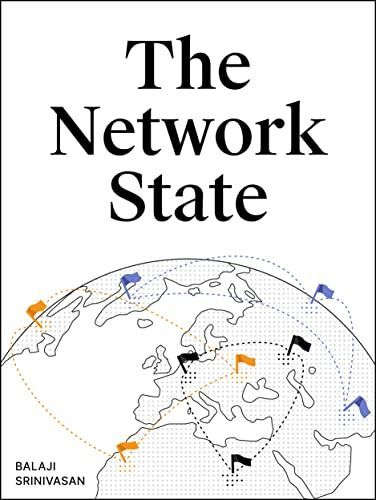
The Network State How to Start a New Country
When the brand new is unthinkable, we fight over the old. That’s where we are today with governments, with politics, and with much of the physical world. But perhaps we can change that.
This book introduces the concept of the network state: a country you can start from your computer, a state that recruits like a startup, a nation built from the internet rather than disrupted by it.
The fundamental concept behind the network state is to assemble a digital community and organize it to crowdfund physical territory. But that territory is not in one place — it’s spread around the world, fully decentralized, hooked together by the internet for a common cause, much like Google’s offices or Bitcoin’s miners. And because every citizen has opted in, it’s a model for 100% democracy rather than the minimum threshold of consent modeled by 51% democracies.
Of course, there are countless questions that need to be answered to build something of this scope. How does a network state work socially, technically, logistically, legally, physically, financially? How could such a thing even be viable?
That’s why you should read this book.
Reviews
Kelly Kim@kellykim
Badal@theblapse
Ethan Sherbondy@sherbondy
Pawel Cebula@pawel
Coleman McCormick@coleman
Katherine @keccers
Gabriel Ayuso@gabrielayuso
Nicholas Charriere@nichochar